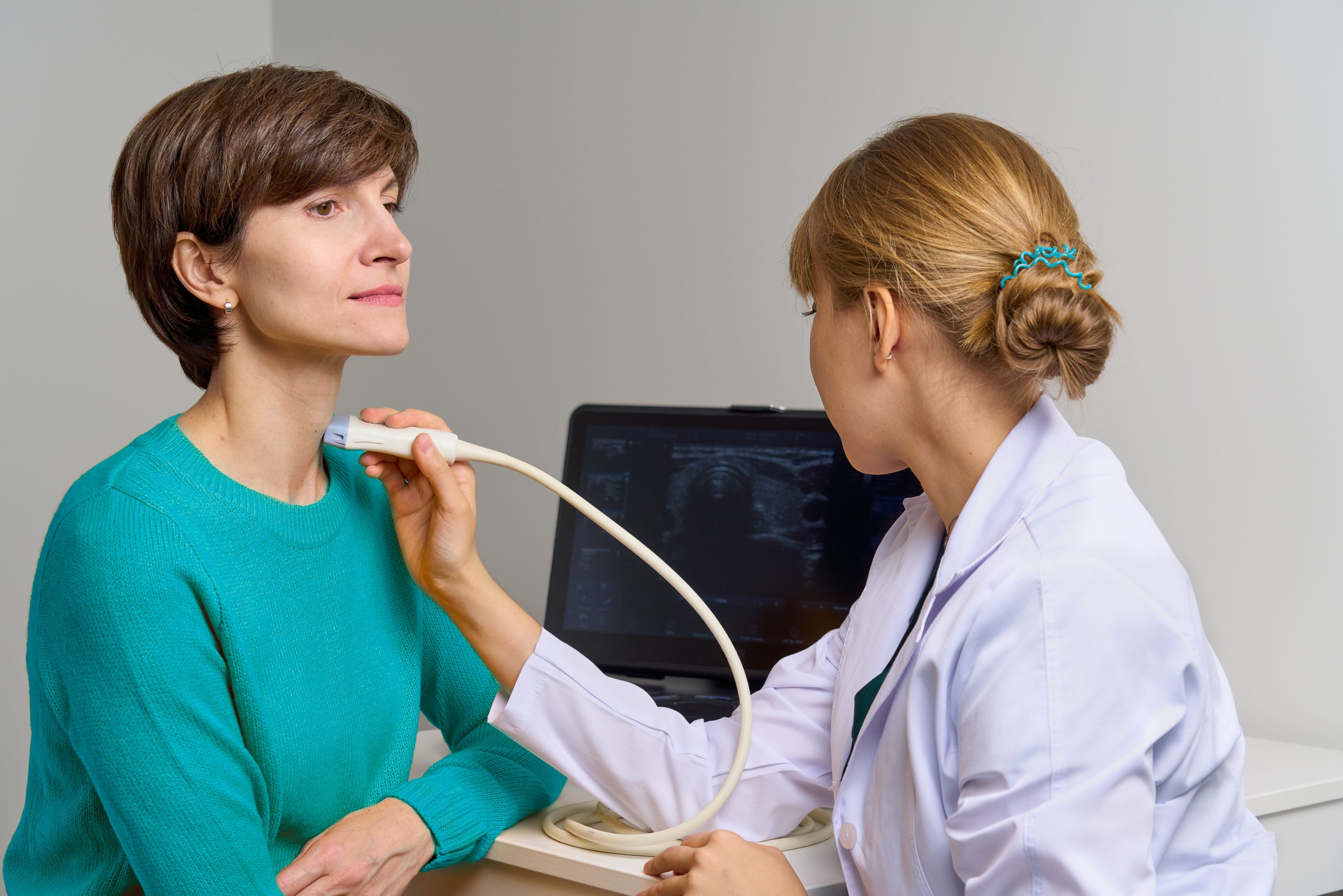Endrocrinology

WHAT IS ENDOCRINOLOGY?
The endocrine system consists of the glands and the hormonal system.
Endocrinology is the discipline of medicine that is responsible for diagnosing and treating diseases of the endocrine system, such as diabetes, hypothyroidism, hyperthyroidism, Cushing’s disease, diseases related to the pituitary gland, etc., but also studies some symptoms of menopause, osteoporosis or hypertension, among others.
Endocrinology is also a very important specialty in boys and girls when studying low height or hormonal imbalances, which may affect sexual development or be the cause of obesity.
Thus, the endocrinologist is the doctor who specializes in endocrinology.
At Clínica Eupnea Palamós, we have this specialty which works together with the nutrition specialty, since many times diseases of the endocrine system are caused by inadequate nutrition.
If you have any questions or want to make an Endocrinology consultation in Palamós, contact us.

DIAGNOSTIC STUDIES AT CLINIC EUPNEA PALAMÓS
- Control of the lipid profile: It consists of a blood analysis that provides information on the level of triglycerides, total cholesterol, HDL cholesterol, LDL cholesterol, VLDL cholesterol and non-HDL cholesterol. The purpose of this test is to assess the risk of developing cardiovascular disease or a metabolic disorder.
- Thyroid ultrasound: Thyroid ultrasound is performed using ultrasound waves that produce images of the thyroid gland in the neck. It is usually a test indicated to evaluate lumps or nodules.
- Radioactive iodine uptake test : For this test, you take a small oral dose of radioactive iodine to see how much your thyroid gland is taking up.
- Thyroid scintigraphy : Radioactive isotopes are introduced into a vein in the elbow while a special camera produces an image of the thyroid on the computer.
- Computed tomography : The test combines a series of X-rays from different angles around the body and uses computer processing to create images of the body’s bones and soft tissues.
- Home enteral nutrition : Better known as tube feeding or HEN. It is a way of providing the necessary nutrients directly to the stomach or intestine.
- Magnetic resonance : It is a non-invasive test capable of creating an image of internal organs, tissues and bones. It involves obtaining images using a magnetic field and computer-generated radio waves to create images of the body’s organs and tissues.
- Hormonal therapy : It is used to introduce into the body the changes made by hormones (male or female, depending on the case) during sexual development.
- Assessment of obesity : Obesity is considered a worldwide epidemic. Although there is a genetic basis, increased calorie consumption as well as a sedentary lifestyle have made this condition more common every day. Preventing and treating obesity is a priority for health.
What is diabetes and what are its symptoms?
Diabetes is a chronic disease that affects how your body processes glucose (sugar) in the blood. Symptoms include excessive thirst, frequent urination, extreme hunger, unexplained weight loss, fatigue, and blurry vision. If you experience these symptoms, consult an endocrinologist.
How is hypothyroidism treated?
Hypothyroidism is generally treated with medications that replace the thyroid hormone your body is not producing in sufficient quantities. The exact dosage is determined based on blood TSH levels and the patient’s symptoms. Consult your endocrinologist to adjust the treatment appropriately.
What is hyperthyroidism and how is it treated?
Hyperthyroidism is a condition in which the thyroid gland produces too much thyroid hormone. Treatments include antithyroid medications, radioactive iodine therapy, or surgery to remove part or all of the thyroid. Talk to your endocrinologist to find the best treatment for you.
What is Cushing's syndrome?
Cushing’s syndrome is a condition caused by an excess of cortisol in the body. Symptoms include weight gain, especially around the abdomen and face, high blood pressure, muscle weakness, and changes in the skin. Treatment depends on the cause and may include medications, radiation therapy, or surgery.
What are the symptoms of insulin resistance?
Insulin resistance can cause symptoms such as weight gain, especially around the abdomen, fatigue, extreme hunger, and difficulty concentrating. It is a condition that can lead to type 2 diabetes and is often managed with dietary changes, physical exercise, and sometimes medications.
What is osteoporosis and how can it be prevented?
Osteoporosis is a disease in which bones become fragile and more likely to fracture. To prevent it, it’s important to maintain a diet rich in calcium and vitamin D, engage in regular physical exercise, avoid smoking, and limit alcohol consumption. Medications may also be prescribed to maintain bone density.
What is growth hormone and when is treatment needed?
Growth hormone is essential for the growth and development of children. Its deficiency can cause slow growth and short stature. In adults, its deficiency can cause fatigue, muscle weakness, and changes in body composition. Growth hormone treatment is prescribed after a thorough evaluation by an endocrinologist.